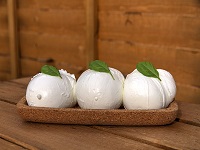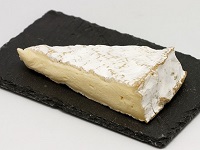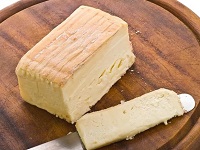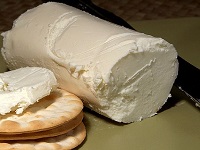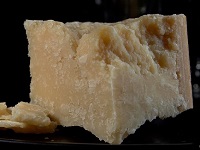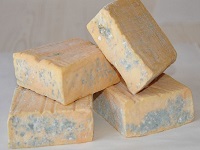Metodo Classico (Italy)
Metodo Classico is the Italian name for wines produced the same way as Champagne.
Metodo Classico Flavors
Citrus, Apple, Pear, and Strawberry are typical Metodo Classico flavors.
Citrus |
Apple |
Pear |
Strawberry |
Fermentation flavors:
Butter |
Yeast |
Bread |
Almonds |
Flavors from Maturation and Aging
Oak |
Vanilla |
Toast |
Nuts |
Metodo Classico Profile
Metodo Classico wines have much the same profile as traditional Champagne:
| SUGAR: | Dry (3 g/l) |
| BODY: | Medium |
| FRUIT: | Medium |
| ACIDITY: | High |
| ALCOHOL: | 12-13% ABV |
| Serving temperatures: 10-12°C (50-54°F) | |
Metodo Classico Food Pairing
You can drink Sparkling Wines to almost everything whether it is French Champagne, Spanish Cava, or Italian Prosecco.
Sparkling wines pair well with salt, because the bubbles break up the salt in the mouth. Acidity and bubbles can also pair well with creamy and oily dishes.
Aperitif |
Salads |
Tapas |
Sandwitch |
Seafood |
Oysters |
Salmon |
Sushi |
Fries |
Chicken |
Turkey |
Pork |
Egg Dishes |
Pasta |
Risotto |
Soft Cheese |
Excellent pairings
Caesar Salad. Seafood Salad.
Hors-d'œuvre. Sandwich. Focaccia.
Tapas. Ham. Serrano. Prosciutto.
Seafood. Oysters. Clams.
Crab. Lobster. Caviar.
Cod. Tuna. Smoked Salmon.
Fried Chicken. Turkey. Pork.
Egg Dishes. Omelettte. Risotto.
Pasta. Ravioli. Macaroni with Cheese.
Asian Food. Springrolls.
Sushi. Sashimi.
Italian Specialities
Fritto Misto di Pesce (Deep Fried Fish).
Risotto ai Frutti di Mare (Risooto with Seafood).
Risotto with Asparagus.
White Fish (Sea Bass) with Polenta.
Lasagne with White Sauce.
The Ideal Glass for Metodo Classico
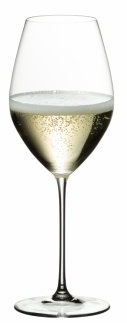
|
A Champagne Glass with a bell that points to the bottom, allows a pilar of bubbles to build up inside the glass. This is not only beautiful, but also extends the "life" of the champagne. A wide middle section lifts the aromas out of the wine. A smaller opening concentrates the scent to the nose and directs the drink to the front of the tongue where it heightens an experience of sweetness. |
Metodo Classico Cheese Pairing
Mozzarella di Bufala
The fresh, milky sweetness and delicate texture of Mozzarella di Bufala is a perfect match for Metodo Classico's crispness. Combine with cherry tomatoes and fresh basil for an elegant Caprese-style presentation.
Brie
The creamy, buttery texture and mild earthy flavors of Brie complement Metodo Classico's crisp acidity and fine bubbles. Serve the cheese at room temperature with a slice of baguette or fig jam.
Taleggio
The creamy, slightly tangy, and earthy qualities of Taleggio pair well with the bubbles and freshness. Serve with crusty bread and dried figs.
Goat Cheese (Chèvre)
The tangy, fresh flavors of goat cheese align perfectly with Blanc de Blancs, highlighting the wine's crisp minerality. Add fresh herbs or a drizzle of olive oil.
Parmigiano-Reggiano
The nutty, salty, and umami-rich flavors of Parmigiano-Reggiano harmonize with Metodo Classico's brightness and complexity. Break the cheese into chunks and drizzle with a touch of acacia honey.
Robiola or Gorgonzola Dolce
The creamy, mild blue cheese contrasts beautifully with Franciacorta's acidity, balancing its richness. Add walnuts or pear slices for a classic pairing.
Italian Sparkling
In Italy, Sparkling wines are called Frizzante or Spumante.
| Frizzante Light bubbles (2.5 - 3.5 bars of pressure) |
Spumante Fully sparkling (4 - 6 bars of pressure) |
| Prosecco | Prosecco Spumante |
| Moscato d'Asti | Asti Spumante |
| Pignoletto Frizzante | Pignoletto Spumante |
| Lambrusco |
Italian Metodo Classico DOC(G)
Metodo Classico is the Italian name for wines produced the same way as Champagne.
| DOC(G) | Grapes |
|---|---|
| Trentodoc DOC (1993) | Chardonnay, Pinot Nero, and Pinot Bianco |
| Franciacorta DOCG (1995) | Chardonnay, Pinot Bianco, and Pinot Nero. |
| Greco di Tufo DOCG (2003) | Greco (main grape) |
| Oltrepò Pavese DOCG (2007) | Pinot Nero (main grape) |
| Alta Langa DOCG (2011) | Minimum 90 % Chardonnay + Pinot Nero |
Trentodoc was the first area in the world (after Champagne) to get a DOC for Traditional Method wines.
